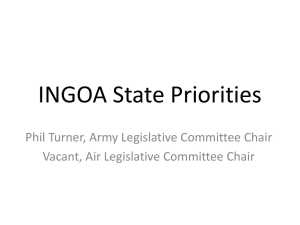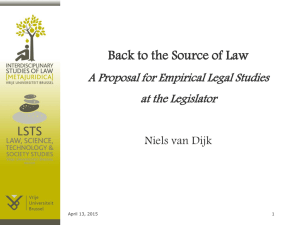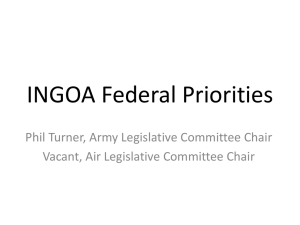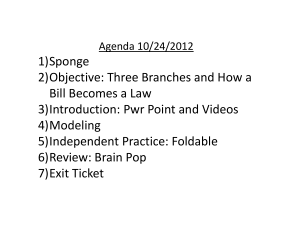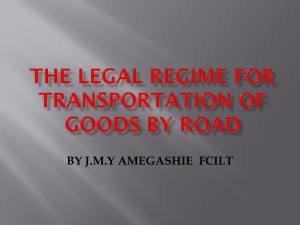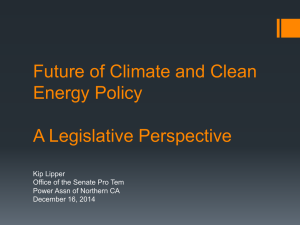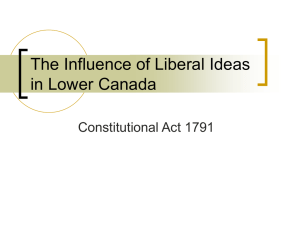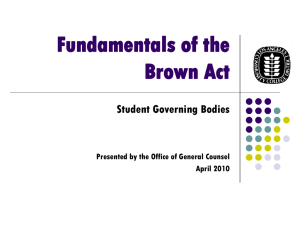Pakistan was among 189 countries that endorsed the UN
advertisement
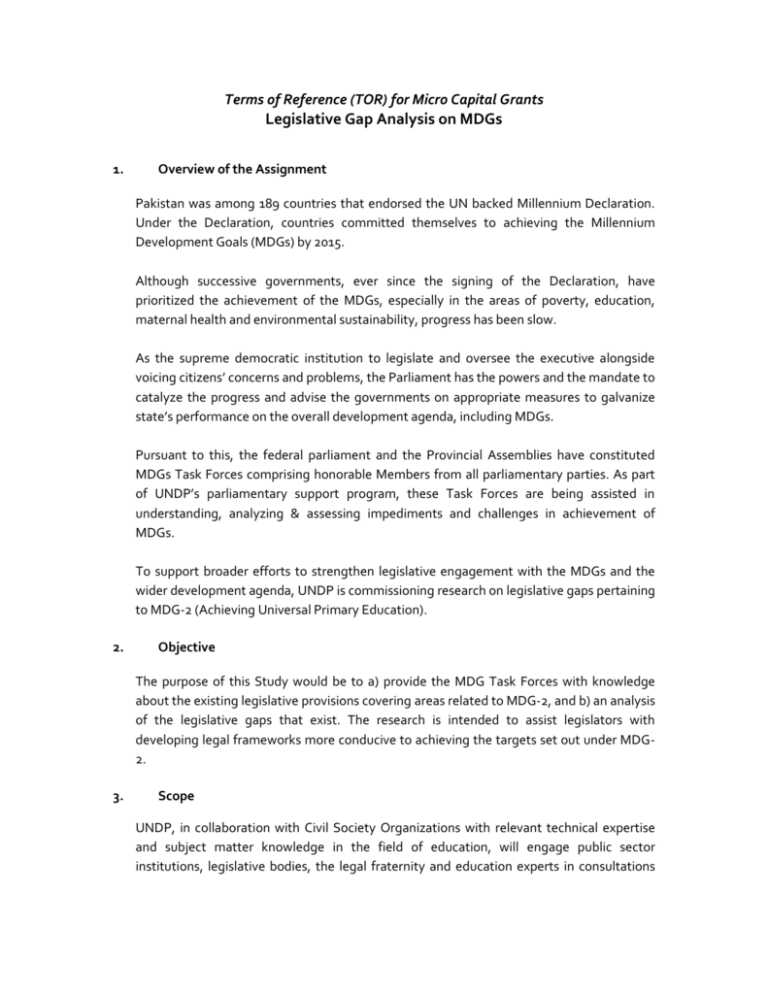
Terms of Reference (TOR) for Micro Capital Grants Legislative Gap Analysis on MDGs 1. Overview of the Assignment Pakistan was among 189 countries that endorsed the UN backed Millennium Declaration. Under the Declaration, countries committed themselves to achieving the Millennium Development Goals (MDGs) by 2015. Although successive governments, ever since the signing of the Declaration, have prioritized the achievement of the MDGs, especially in the areas of poverty, education, maternal health and environmental sustainability, progress has been slow. As the supreme democratic institution to legislate and oversee the executive alongside voicing citizens’ concerns and problems, the Parliament has the powers and the mandate to catalyze the progress and advise the governments on appropriate measures to galvanize state’s performance on the overall development agenda, including MDGs. Pursuant to this, the federal parliament and the Provincial Assemblies have constituted MDGs Task Forces comprising honorable Members from all parliamentary parties. As part of UNDP’s parliamentary support program, these Task Forces are being assisted in understanding, analyzing & assessing impediments and challenges in achievement of MDGs. To support broader efforts to strengthen legislative engagement with the MDGs and the wider development agenda, UNDP is commissioning research on legislative gaps pertaining to MDG-2 (Achieving Universal Primary Education). 2. Objective The purpose of this Study would be to a) provide the MDG Task Forces with knowledge about the existing legislative provisions covering areas related to MDG-2, and b) an analysis of the legislative gaps that exist. The research is intended to assist legislators with developing legal frameworks more conducive to achieving the targets set out under MDG2. 3. Scope UNDP, in collaboration with Civil Society Organizations with relevant technical expertise and subject matter knowledge in the field of education, will engage public sector institutions, legislative bodies, the legal fraternity and education experts in consultations about the legislative gaps that exist pertaining to the legal and regulatory framework for MDG-2. 4. Roles and Responsibilities UNDP will: Provide technical support to CSOs in implementing the project; Give regular inputs over the course of different stages of the Study; Participate in consultation workshops with legislators, public sector institutions, sector experts, CSOs and relevant stakeholders; Supervise and monitor the CSOs activities; Approve the methodology, implementation strategy, content developed and ensure UN quality standards. CSOs will: Submit proposals for the Study on assessment and analysis of legislative gaps in achieving Goal-2 at provincial (all provinces separately) and federal levels. The proposal must contain the following; o Situational analysis; o Rationale of the project; o Proposed activities; o Implementation strategy; o Managerial arrangements; o Capacity of CSO in conducting similar Studies; o Activities implementation plan; o Monitoring and evaluation framework; o Reporting mechanism and; o Proposed budget. Coordination with public sector institutions, legislative houses and technical experts to identify authentic primary sources of knowledge, make consultations with stakeholders to get practical insight of on-ground issues on the subject; Coordination with local stakeholders to get their feedback and incorporate it into the draft study; Identify key gaps in terms of legislation and oversight of the implementation of the existing legislations relevant to education; Document reports of all consultations and / or key informant interviews; Compile primary information collected from public sector institutions, legislative houses etc. Prepare a comprehensive report, including separate sections for every province and for federal level. There could be a section for common problems for all houses if necessary; Make clear recommendations to address legislative and oversight gaps. 5. Possible type of activities Mapping of existing legislation and policies pertaining to the achievement of targets under MDG#2. Mapping of key sources of information on MDG #2 for continuous oversight and ascertaining the implications of, and need for, particular legislative proposals by the MDG Task Forces; Collating the data generated during the mapping exercise and analysis of existing provisions while drawing out the need and demand for new legislative measures; Conduct consultative sessions (all provinces and federal level) with technical experts, CSOs working on ground with communities on the particular areas of the Goal-2, the relevant Department(s) and allied public institutions and legal fraternity. The consultations will debrief the stakeholders on the mapping exercise as well as the legislative gap analysis and will get their feedback / input thereon. Engage legal expert(s) to oversee the recommendations and legislative proposals. 6. Key Outputs Mapping of existing legislative provisions in all provinces and at federal level for achieving MDG-2; Documentation of consultative sessions, and incorporation of the proposals from stakeholders in the main body of the Study; Study Report covering the mapping, consultation, analysis of legislative gaps and recommendations for addressing the gaps that have been identified 7. Geographical Scope Geographical focus will be each province (provincial capital) and Islamabad to get the primary and secondary data, insights into diverse experiences, and recommendations from different institutions, practitioners and experts on MDG#2 8. Expected Funding The Grant shall not exceed than $7,000. 9. Duration of Activities Duration of the activities shall not exceed three months starting from June to September, 2015 10. Reporting The selected CSOs will submit the following reports: Monthly progress report Completion reports of all stages i.e. o Mapping o Stakeholders’ Consultations o Collation & Analysis o Legal expert analysis and recommended proposals for addressing legislative gaps. Final Draft of the Study 11. Monitoring and Evaluation A Monitoring and Evaluation Framework should be developed including activities, SMART indicators, tools and means of data collection and verification, frequency of data collection, and other relevant details. 12. Eligibility The CSOs applying for this grant should meet the following conditions: The CSO has been established as a non-profit organization; The CSO has been incorporated under the relevant government law, e.g. the Companies Ordinance 1984, the Societies Act 1860, Cooperative Societies Act 1925, and Voluntary Social Welfare Agencies' Ordinance 1961; The CSO has been registered with the relevant government authority; which is the Securities and Exchange Commission of Pakistan (SECP); The aim of the CSO is to promote development, welfare, research and/or advocacy; The organization should preferably have research background particularly in the field of Education; The CSO has been registered for at least three years at the time of applying for this grant; The cumulative expenditure managed by the CSO in the last three years is equal to or greater than the proposed amount of the grant applied A proven working experience in conducting such Studies.
